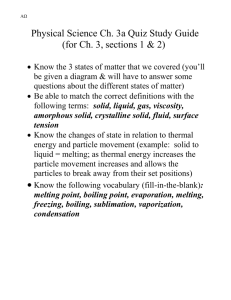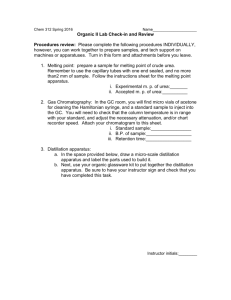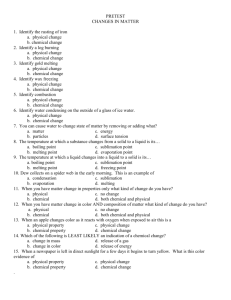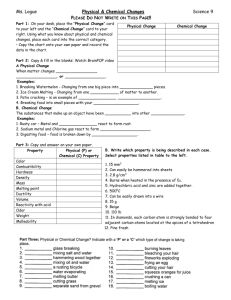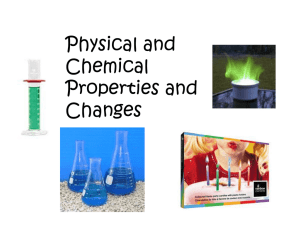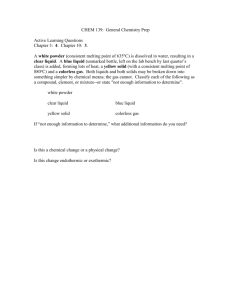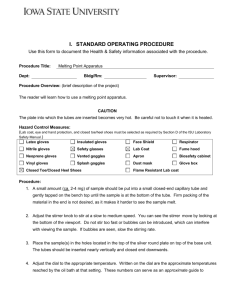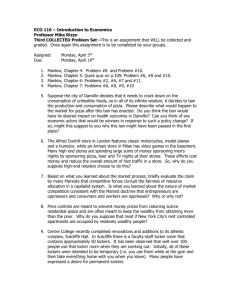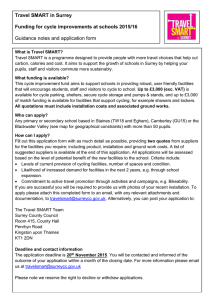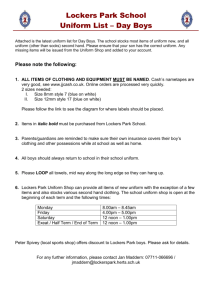Technique Day The first week of lab this semester will be a lab
advertisement
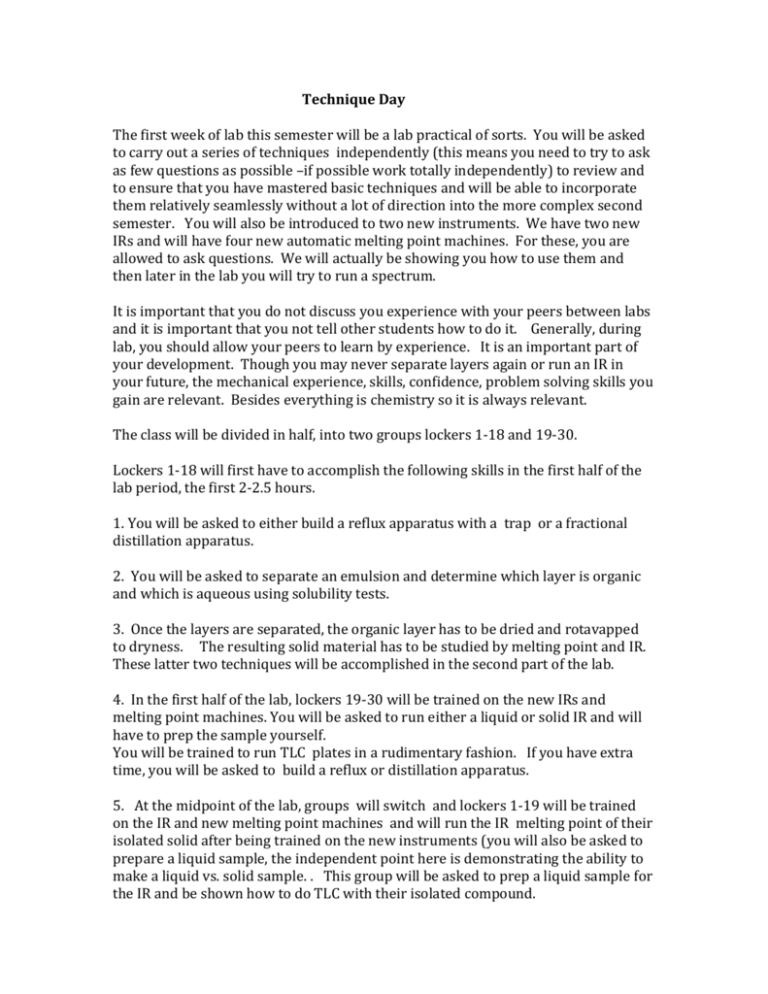
Technique Day The first week of lab this semester will be a lab practical of sorts. You will be asked to carry out a series of techniques independently (this means you need to try to ask as few questions as possible –if possible work totally independently) to review and to ensure that you have mastered basic techniques and will be able to incorporate them relatively seamlessly without a lot of direction into the more complex second semester. You will also be introduced to two new instruments. We have two new IRs and will have four new automatic melting point machines. For these, you are allowed to ask questions. We will actually be showing you how to use them and then later in the lab you will try to run a spectrum. It is important that you do not discuss you experience with your peers between labs and it is important that you not tell other students how to do it. Generally, during lab, you should allow your peers to learn by experience. It is an important part of your development. Though you may never separate layers again or run an IR in your future, the mechanical experience, skills, confidence, problem solving skills you gain are relevant. Besides everything is chemistry so it is always relevant. The class will be divided in half, into two groups lockers 1-18 and 19-30. Lockers 1-18 will first have to accomplish the following skills in the first half of the lab period, the first 2-2.5 hours. 1. You will be asked to either build a reflux apparatus with a trap or a fractional distillation apparatus. 2. You will be asked to separate an emulsion and determine which layer is organic and which is aqueous using solubility tests. 3. Once the layers are separated, the organic layer has to be dried and rotavapped to dryness. The resulting solid material has to be studied by melting point and IR. These latter two techniques will be accomplished in the second part of the lab. 4. In the first half of the lab, lockers 19-30 will be trained on the new IRs and melting point machines. You will be asked to run either a liquid or solid IR and will have to prep the sample yourself. You will be trained to run TLC plates in a rudimentary fashion. If you have extra time, you will be asked to build a reflux or distillation apparatus. 5. At the midpoint of the lab, groups will switch and lockers 1-19 will be trained on the IR and new melting point machines and will run the IR melting point of their isolated solid after being trained on the new instruments (you will also be asked to prepare a liquid sample, the independent point here is demonstrating the ability to make a liquid vs. solid sample. . This group will be asked to prep a liquid sample for the IR and be shown how to do TLC with their isolated compound. 6. Lockers 19-30 will separate the emulsion, determine which layer is which using solubility techniques, dry and rotavap the organic layer to dryness and run a TLC or the solid. There may not be enough time. To run the IR, but you will have run one earlier in the period. It is your responsibility before this lab to go back and review all the relevant material. This means, go back to the first semester lab manual and watch all videos that are relevant and read all relevant labs again. This is your responsibility to review and be prepared. You can also use other lab manuals or videos on the web to prepare. The point is you have everything diagramed, outlined and ready to go and you do what you are supposed to do independently. Again, you will not be treated in a negative manner if you need to ask a question, but it is important to reach inside and try to work on your own. Also note that safety rules have to be followed and working efficiently is somewhat important. The grades for this exercise will be either check , check minus or check plus. A check – will translate into an 80 percent, a check into 85 percent and a check plus, a 90. I feel that lab is like driving a car. You can drive and constantly ask for direction and never really learn how to go from point A to point B, it is time to learn how to drive independently if you just force yourself through things on your own.

